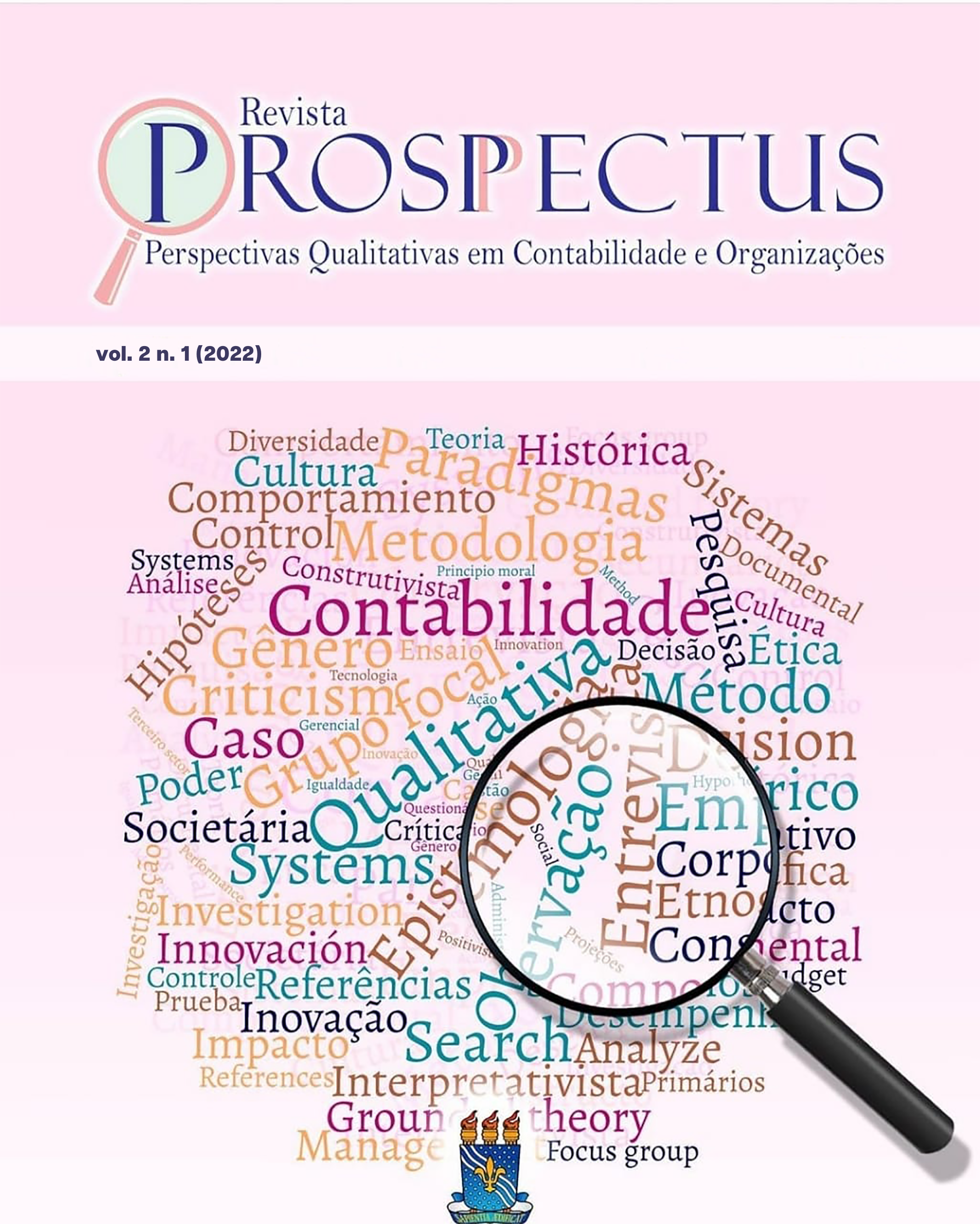Compliance with the Entity Principle of Internal Control Practices in Small Enterprises
Keywords:
Internal controls. Small enterprises. Entity Principle.Abstract
Objective: identify the practices of internal controls in small enterprises that signal the fulfillment of the Entity Principle by managers.
Method and approach: as for the objectives, in a descriptive and qualitative exploratory way to seek to understand the subjectivities of the phenomenon under study. Data collection was obtained through a structured interview form with 26 managers of micro and small enterprises, organized in two dimensions. The first dimension aims to identify the profile of the manager and the enterprise and the second dimension identifies the manager's knowledge of the Entity Principle and checks the internal control practices adopted in his enterprise.
Results: The results show that despite the majority of the sample knowing in part the Entity Principle and recognizing its importance for the control and management of the enterprise, they do not use it in practice, as they consider it difficult to separate assets. Complementing the research findings, most managers say they do not know the questioned internal control routines, in the application of the entity's principle of autonomy, and do not know how to apply it in their enterprises.
Contributions and Relevance: it was possible to highlight the managers' view of the knowledge and applicability of this principle, so that it becomes relevant to change the scenario of managers in such enterprises, so that there is observance and consequent application of the controls internals efficiently. The observance of the Entity Principle through an applied research, by students of the first period of a university, allowed them to be agents of change, making them pay attention to the responsibility they will have to show managers the effective application of this principle.


